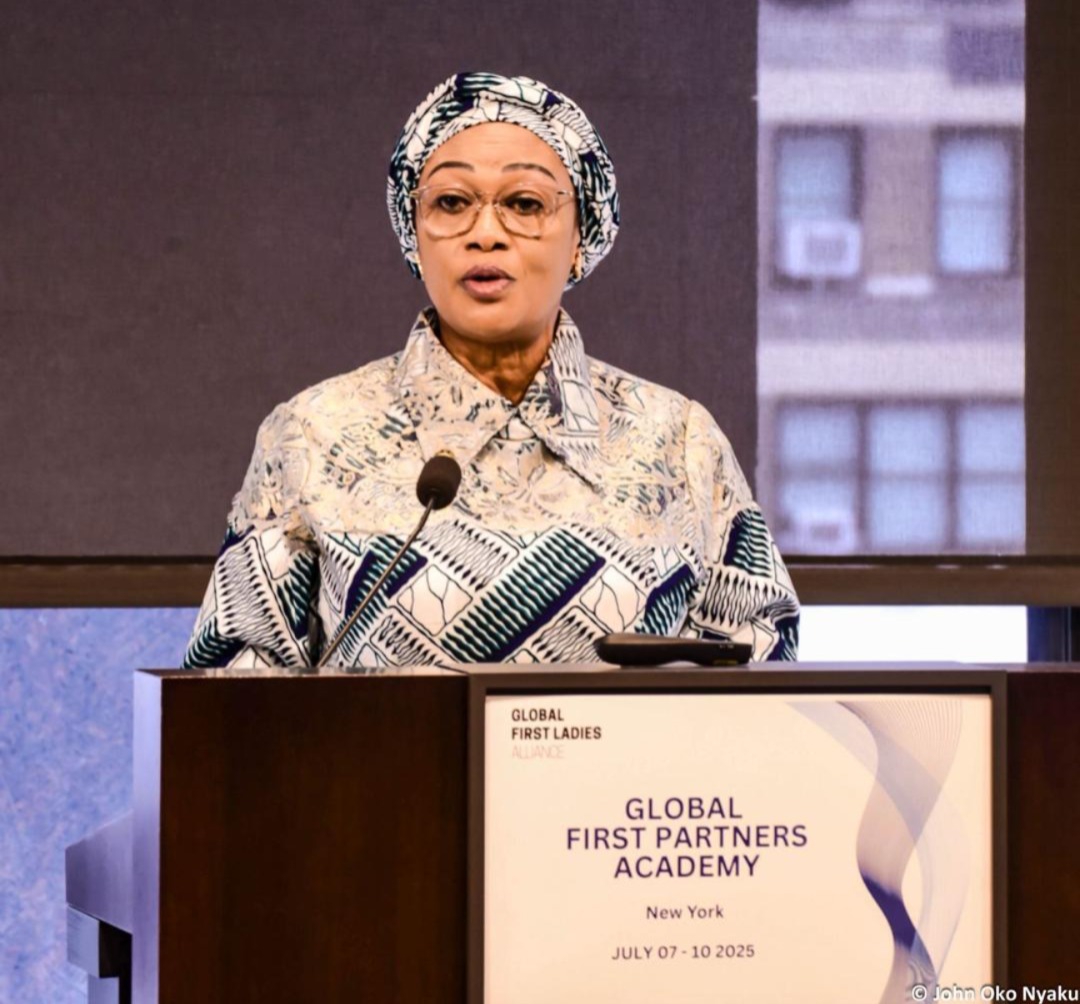Nigeria’s First Lady Remi Tinubu Urges Global Leaders to Shape a Brighter Future for Youth
Senator Remi Tinubu, Nigeria’s First Lady, has called on world leaders, First Ladies, and government partners to take proactive steps in creating an inclusive and empowered future for young people.
Speaking on Day 2 of the Third Annual Global First Partners Academy in New York, USA, she delivered an address titled “First Partners’ Role in the World: Preparing the Youth for the Future,” emphasizing the need for collaboration to equip youths for a rapidly evolving global landscape.
“Across continents, we face a common challenge of a rapidly evolving global landscape,” she said. “Whether in Lagos, London, or Los Angeles, the future is being shaped by technology, innovation, climate change, migration, and new economic paradigms.”
In a statement by her media aide, Busola Kukoyi, Senator Tinubu urged First Ladies and global partners to act as “non-partisan influencers, public advocates, and maternal figures” with a moral duty to drive transformative change. “We cannot wait for the future to happen; we must shape it now,” she said, quoting Abraham Lincoln: “The best way to predict the future is to create it.”
As a lifelong educator, Tinubu highlighted the importance of building mental capacity, reshaping mindsets, and fostering self-belief among youths.
She praised the creativity and resilience of Nigerian youth and reaffirmed the commitment of President Bola Tinubu’s administration to supporting their aspirations through initiatives like the Renewed Hope Agenda and her own Renewed Hope Initiative, which focus on education, mentorship, technology, and civic inclusion.
“Preparing the youth for the future also means meeting them where they are – in the digital space, in creative industries, in technology, and in governance,” she said. “We adults have a lot of catching up to do.” She advocated for more scholarships, internships, mentorship programs, and platforms for civic participation to empower young people to shape their societies.
Tinubu also stressed the power of partnerships, urging First Ladies to leverage their influence to address systemic challenges facing children, women, and youths. “No problem is insurmountable if we do the needful,” she said.
The session included insights from other serving and former First Ladies, university scholars, and policy experts, who discussed tools for constructive dialogue, social cohesion, and inclusive development.
Panel discussions explored how Artificial Intelligence can address women’s health, food security, and youth development, highlighting technology’s role in tackling structural inequalities.

The Global First Partners Academy, in its third year, continues to foster collaboration among First Ladies and global partners to develop solutions for pressing global challenges.



